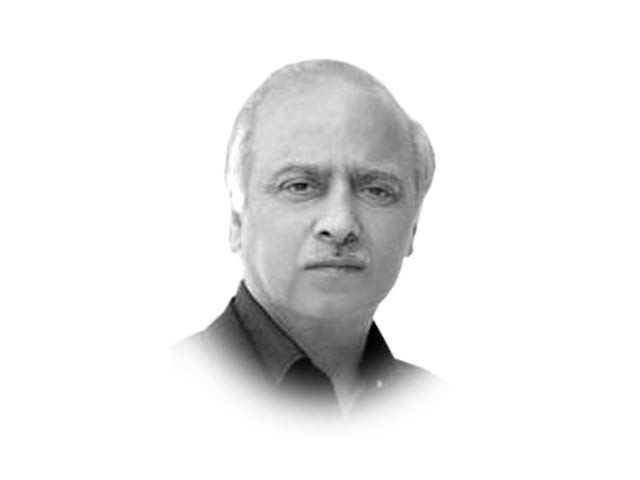Pakistan’s apathetic rulers
Dated model of elitist governance has reached tipping point, with ever more citizens getting economically marginalised

The writer heads the independent
Centre for Research and Security Studies, Islamabad
The chronically sick Pakistan Steel Mills and PIA, the deeply-indebted Pakistan Railways, the so-called International Islamabad Airport, which is under construction, the lingering Neelum-Jhelum Hydropower Project and the Metro Bus, epitomise this crony-based, personal interest-driven insensitive style of governance.
They also reflect the rulers’ apathy to some of the urgent needs of the country. Power shortages are perennial, but look at what is happening to the 960 megawatts Neelum-Jhelum Hydropower Project.
Already delayed, the project, according to national press reports, is facing a massive financial crunch, and officials associated with it fear that it won’t be completed by the end of 2016.
The new Islamabad airport offers a similar story; the project was launched in April 2007 and was supposed to be completed within 30 months at a cost of Rs37 billion ($400 million). The project cost was revised in March 2012 over Rs 66 billion. Lo and behold, the Civil Aviation Authority revised the expenditures again in 2014 to Rs 95 billion with October 2016 as the promised completion date.
This also merits a mention of the current Islamabad airport. It has already been regarded as the worst in the world in terms of cleanliness, facilities and customer service.
Airports do symbolise social functionality and economic vibrancy of a country. But the first impression Islamabad gives to foreigners is that of chaos and lethargy. It is too small a place for a flight bringing hundreds of passengers.
Conditions at the departure lounge are no different either but rulers cannot imagine the plight of common passengers because they themselves route through the VIP channels in comfort. Quite similar to how they can’t imagine the pains of traffic jams in the sweltering months of summer.
Ironically, indeed, the Metro Bus, the Pakistan Steel Mills and more motorways are getting funds but extremely critical projects such as the Neelum-Jhelum and the airport projects remain cash-starved and way behind schedule.
Rulers, it seems, are hardly bothered about existential threats (power shortages) and Pakistan’s image (airport facilities) just because they live surrounded by security walls.
The curious case of the steel mill betrays a similar story. This den of corruption, inefficiency and political vested interest has received a sum of Rs18.5 billion since May 2014 as part of a bailout on the assurance from its management that it would bring the production to the level of 77 per cent by February 2015. Unfortunately, as of December, it was hardly working at 30 per cent of its production capacity. Its liabilities have already snowballed to some Rs260 billion.
Now, the management is getting ready to ask the federal government for another Rs13 billion to pay overdue salaries of its employees. The question is: why have successive governments continued to inject billions of rupees every year into a plant that is only accumulating liabilities and working at less than one-third of its capacity.
Why not privatise this profusely bleeding unit rather than sinking billions into it? A golden handshake to all employees may not cost more than Rs40 billion and the steel mill can then be sold at a symbolic price to get rid of this atrocious facility.
This political charity off the taxpayers’ money has to end someday. This dated model of elitist governance has reached a tipping point, with ever more citizens getting economically marginalised, the ever-growing youth bulge being neglected and daily suffering at the hands of a rigid bureaucracy. This status quo cannot survive for too long. The country may soon descend into an upheaval.
Published in The Express Tribune, February 11th, 2015.
Like Opinion & Editorial on Facebook, follow @ETOpEd on Twitter to receive all updates on all our daily pieces.















COMMENTS
Comments are moderated and generally will be posted if they are on-topic and not abusive.
For more information, please see our Comments FAQ